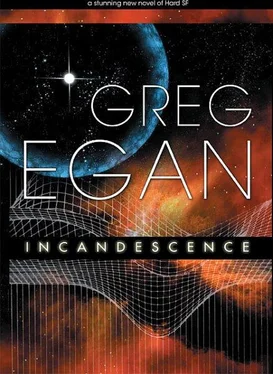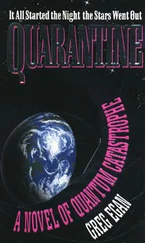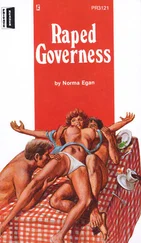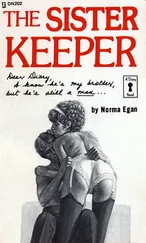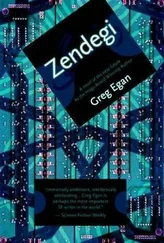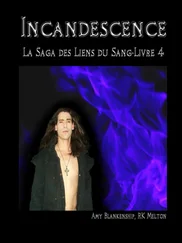"Let's hope so." Roi wasn't sure how complicated the geometry might yet turn out to be. Now that they knew that it lacked the perfect symmetry they'd hoped for, in principle it could be as messy and irregular as the walls of a tunnel.
Ruz timed the Wanderer as it moved across the width of the arc. Roi looked out into the void, freed of the tracker's narrow view, wondering what these lights might be. Small pieces of the Incandescence, severed from it somehow? She didn't understand why the Incandescence was confined to a plane at all, but perhaps there was some way that parts of it could break free, over time.
Or perhaps it was the other way around. Perhaps these points of light began by moving freely, their orbits aligned in all manner of directions, and over time the geometry around the Hub gathered them together and dragged them down into the plane. If that was the case, then these lights were not the offspring of the Incandescence, but its source, its replenishment.
Roi felt giddy, but she could almost picture it: a void full of lights that spiraled in toward the Hub, which swept them together into a plane of wind and radiance. That was the world the Splinter had been immersed in before the Jolt, and from within it had seemed boundless and unchanging. Gradually though, even particles of wind would drift close enough to the Hub to fall, irretrievably. So there would need to be more of the lights coming in, endlessly feeding the Incandescence.
She was tempted to share her ideas with Ruz, but that could keep until they were inside again; better to let him concentrate on his measurements. As she watched the lights drifting across the arc, the Wanderer suddenly grew brighter. A luminous spike transected it, and a second point of brilliance blossomed at the tip of that spike and moved away.
Ruz said, "Did you see—?"
"Yes."
"What was that?"
The smaller bright point had vanished; Roi wasn't sure if it had traveled beyond the band of visibility or simply become lost in the crowd, but she couldn't see anything moving.
"The weight must have torn a piece off it," Roi said. "Like the Splinter dividing."
"It's still there," Ruz said. "As bright as ever."
"It's not rock," she said, "it won't break up the same way. Rock by itself is dark; this is wind and light, it's all the things that become the Incandescence."
"What strength does wind and light possess, to hold together at all?" Ruz protested.
"I have no idea," Roi said. "There's still too much we don't know."
The dark phase was almost over; they made their way to the crack and began the descent.
They agreed that it was time to return to the Null Line, to tell the rest of the team the sad news about Zak, and to start working together to make sense of their observations. They put the light machine inside Zak's cart, and took turns in the harness.
The downhill journey was easy, and with the light machine to keep them going they made good progress. As they trudged through the tunnels in the shallow light, Roi found herself wondering if her eggs had hatched, if her children were already taking lessons from Gul. Let there be another Zak or two among them, she thought. The Splinter was going to need them.
Suddenly the tunnel was drenched in brightness. Roi tensed, gripping the floor, prepared for another Jolt. Ruz was behind her, dragging the cart; she heard him take a few unwilling steps from sheer momentum before he froze too.
The light peaked, then faded. After a few heartbeats there was darkness; the light machine was still grinding away, but Roi's eyes were too dazzled to register its effect. There'd been no Jolt, no change in weight.
Ruz spoke first. "What we saw break free from the Wanderer. "
"Just passed us by," Roi said. "The Jolt must have been the same kind of thing, only a bigger piece, or a more direct encounter." She was certain now that her guess about the lights was correct: they fed the Incandescence, and it was not a gentle process. "The geometry is tearing the Wanderer apart, and some of the splinters from it will fall toward the Hub. We're so close to the Hub that it's inevitable that we'll be in the way of some of them."
The light machine fell silent.
"Then which way does safety lie?" Ruz asked. "We need to move away from the Hub, or the next Jolt could push us past the point of no return. But if Bard's tunnel is ever completed, and we succeed in making the Splinter spiral outward, how can we be sure that we won't collide with the Wanderer itself?"
Roi said, "We can't be sure of anything. All we can do is what Zak taught us to do: measure, calculate, try to understand."
Ruz shifted nervously in the darkness. "How many generations will it take us to understand enough to climb out of this trap, without killing ourselves in the process?"
"Maybe one," Roi said hopefully, thinking again of her own children. If they grew up juggling templates and calculating the geometry of the void, it might not be the same struggle for them as it had been for their elders.
Ruz said, "We might not have that much time."
Rakesh said, "There's no question that they're sentient. And there's no question that the bulge is a dangerous place. The question is, would they understand what it is we have to offer them?"
Parantham gazed back at him across the control room. "Probably not. Not straight away. Perhaps we could work up to it over time."
"How much time do we have?"
"This Ark's not in any kind of imminent danger."
Rakesh said, "We can't do much for them if we're exiles here ourselves."
"You mean Csi's story? You're afraid the Amalgam won't take us back if we don't get out before the news about Lahl spreads around the inner disk?"
"Do you think I'm being paranoid?"
"I don't know." Parantham thought it over. "The Amalgam has a strong tradition of hospitality, but it also has a strong tradition of cutting off those who abuse it. I think it will come down to whether or not people will believe that Lahl was an act of bad faith by the Aloof, or just a genuine traveler who covered her tracks."
"Or in the absence of conclusive evidence either way," Rakesh suggested, "it will come down to where they want to place the benefit of the doubt, how they want to weigh the risks."
"What risks? The Aloof have no more power to harm us by posing as citizens of the Amalgam than they have skulking down in the bulge."
"Maybe, but they shouldn't have lied to us. That's the part that's hard to forgive. That's the part that makes it hard to trust them."
"Maybe they had to lie." Parantham spread her arms. "Is this my body? Was I born with it? Am I lying to you by pretending to inhabit it the way you inhabit yours?"
"If they were capable of pretending to be Lahl, surely they were capable of saying, 'By the way, we're not quite who we seem to be.'"
"Just because we can imagine Lahl saying that doesn't mean they were capable of doing it — or capable of understanding why we wish they had."
Rakesh put his head in his hands. "Forget the Aloof. What are we going to do about the Arkdwellers?"
Parantham said, "Keep studying them until things become clearer. If you'd let me run some simulations—"
"They're sentient, they have a right to privacy. We can't do anything like that without informed consent."
"But we can spy on them as much as we like?"
"There's a difference," Rakesh protested heatedly, "between sending avatars in discreetly to observe their public behavior and stealing DNA samples in order to run simulations."
"Public behavior, as distinct from what? They don't seek privacy from each other for anything they do."
"It's about consent, it's not about social taboos."
Parantham raised her hands in a gesture of resignation. "You're their cousin, you're the child of DNA. You decide, I'll just keep my mouth shut."
Читать дальше
